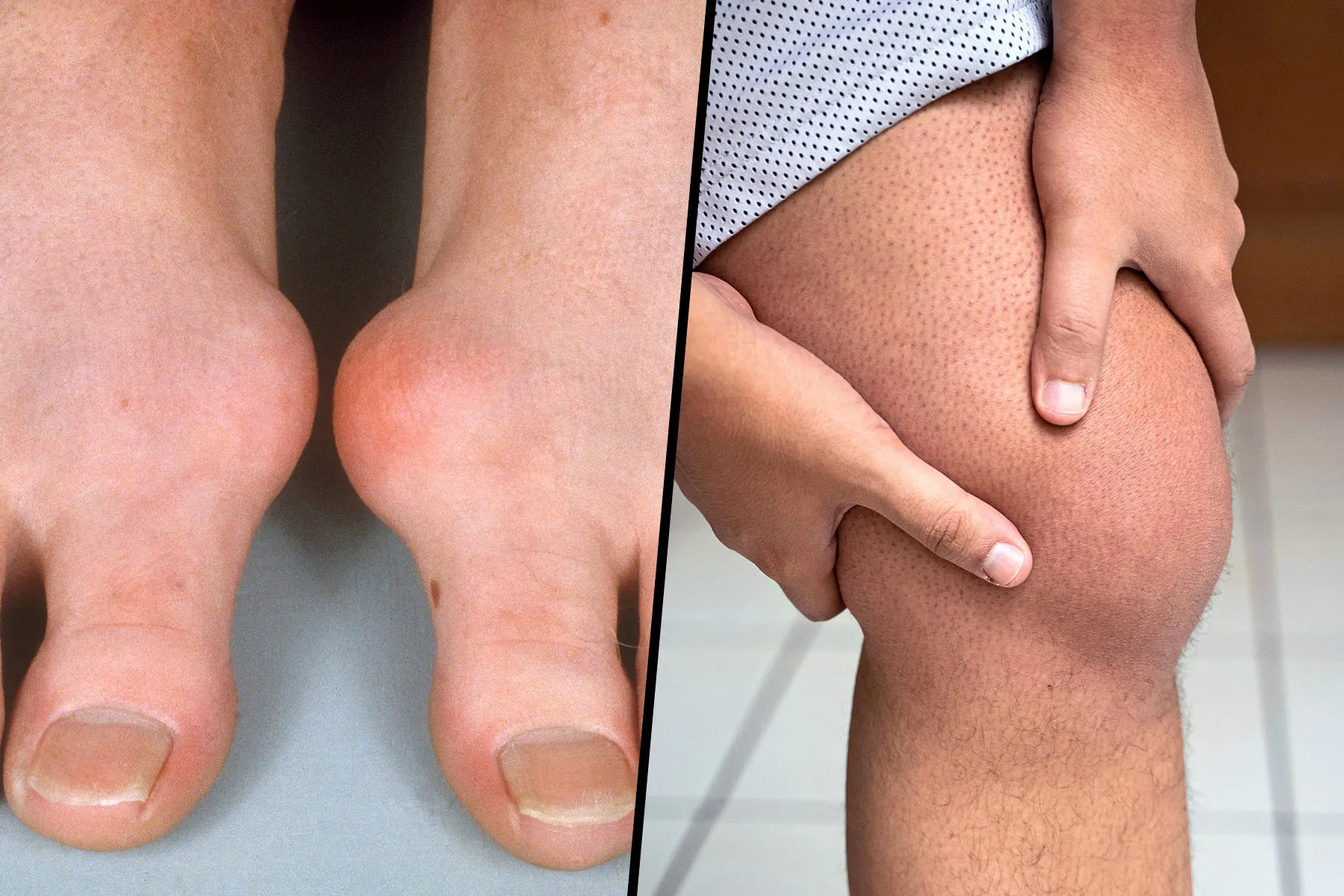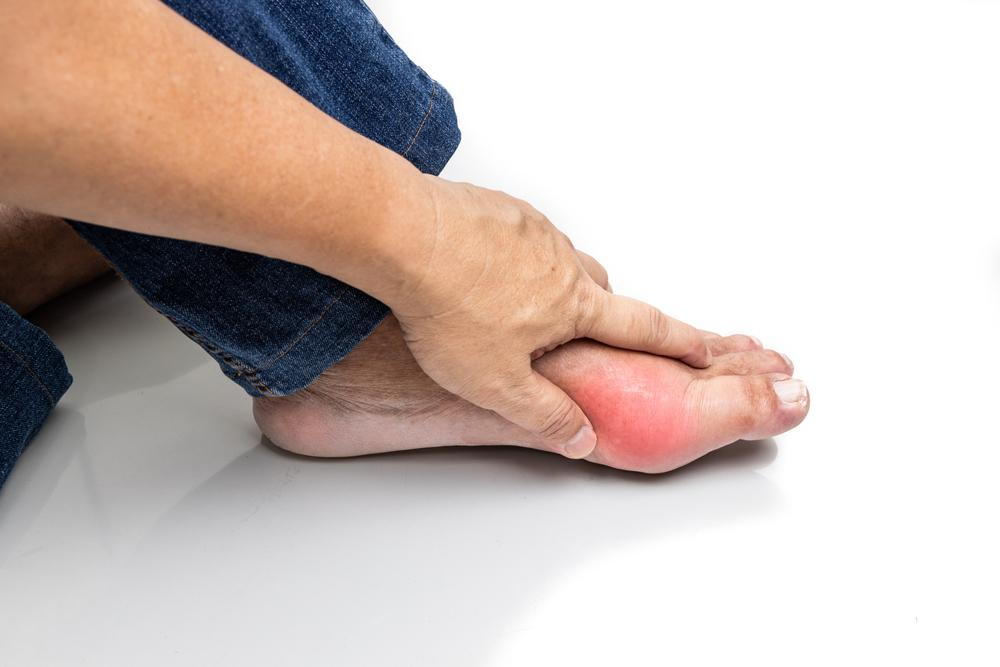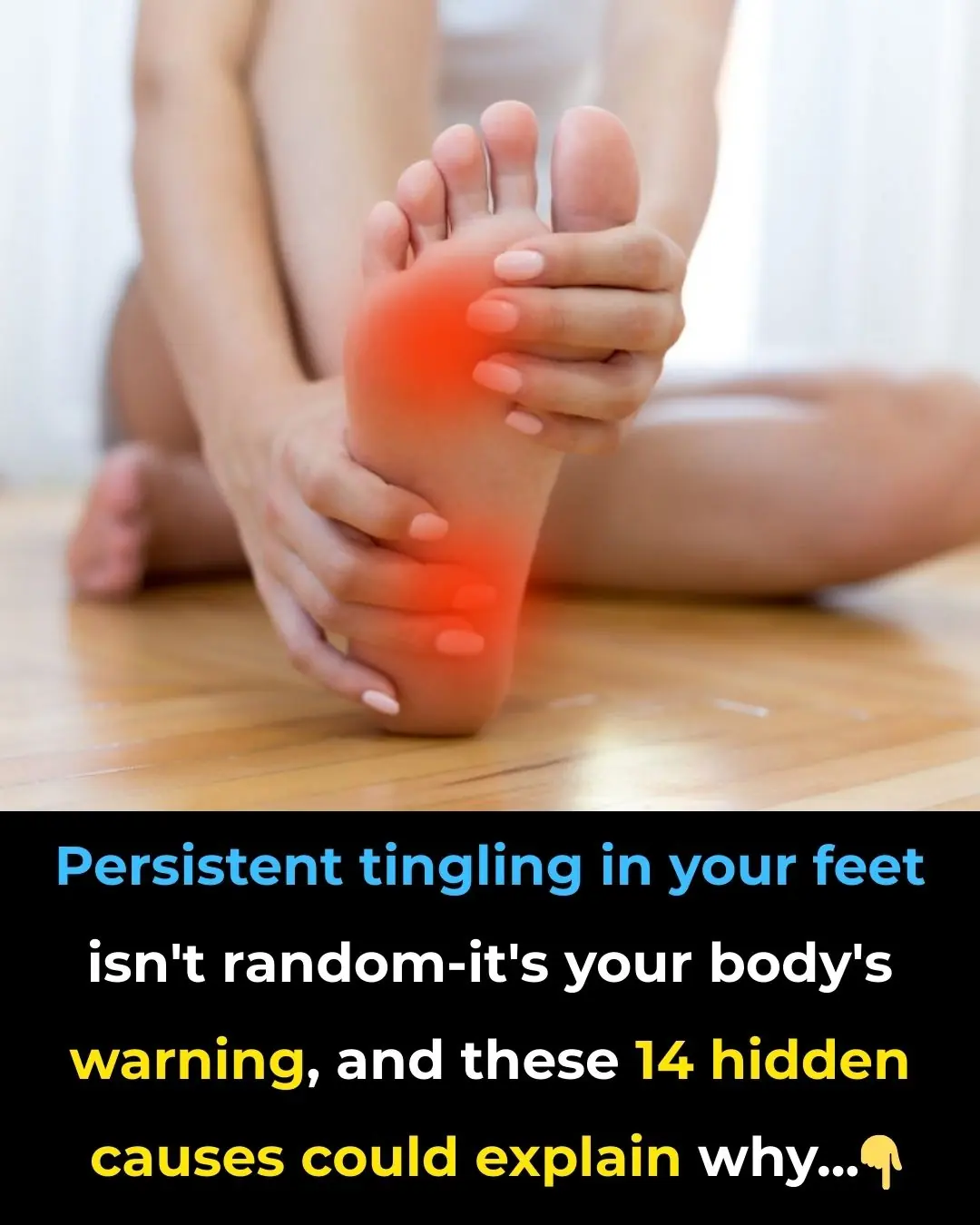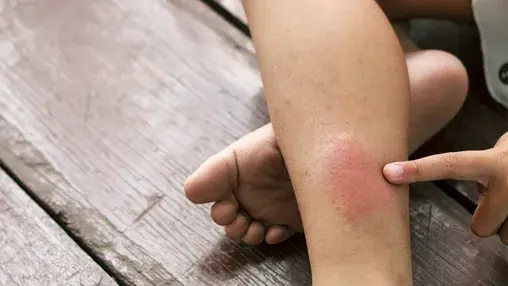
Swollen Legs, Ankles, and Feet: Causes and Proven Remedies (Including a Parsley Tea Recipe)
Swollen Legs, Ankles, and Feet: Causes and Proven Remedies (Including a Parsley Tea Recipe)
Swollen legs, ankles, and feet can cause significant discomfort and even pain. This common condition, known as edema, occurs when fluid accumulates in the tissues of your lower limbs. While it can be a simple result of daily activities like sitting or standing for too long, edema can also be a sign of a more serious underlying health issue. Understanding the cause is key to finding the right solution.
In this article, we'll explore the common reasons for fluid retention and offer effective home remedies to help you find relief. We'll also cover when it's crucial to seek medical attention for your symptoms.

What Causes Swollen Legs, Ankles, and Feet?
Fluid buildup in the lower extremities is often caused by a combination of gravity and lifestyle factors. However, it's important to be aware of other potential causes.
-
Prolonged Sitting or Standing: This is the most common cause. Gravity pulls fluid downward, causing it to pool in your feet and ankles, especially if you have a sedentary job or a long commute.
-
Excessive Salt Intake: A diet high in salt makes it harder for your kidneys to flush out excess fluid. This fluid retention can lead to swelling in your ankles and feet.
-
Pregnancy: It's normal for most pregnant women to experience swollen ankles, feet, and hands. However, sudden or severe swelling can be a sign of preeclampsia, a serious condition that requires immediate medical attention.
-
Hot Weather: High temperatures can make it more difficult for your body to circulate fluids, leading to a visible puffiness in your lower legs.
-
Underlying Medical Conditions: Swelling can be a symptom of more serious health issues, including heart disease (when the heart struggles to pump blood), liver disease (which can affect fluid balance), and kidney disease (which impairs the body's ability to remove excess fluid and salt).
-
Deep Vein Thrombosis (DVT): This serious condition involves a blood clot in a deep vein, usually in one leg. It often causes sudden, painful swelling in a single leg and requires immediate medical care.
-
Varicose Veins: These twisted, enlarged veins can lead to poor circulation, resulting in fluid buildup and swelling in the ankles and feet that often worsens throughout the day.

Proven Home Remedies for Swollen Legs, Ankles, and Feet
For everyday swelling, a variety of simple and effective remedies can provide relief. These methods focus on improving circulation and reducing fluid retention.
-
Elevate Your Legs: A simple yet highly effective method is to elevate your legs above your heart for at least 20 minutes at a time. This uses gravity to help drain the pooled fluid from your lower extremities. You can do this by lying down with your feet propped up on pillows.
-
Stay Active: Regular physical activity, especially walking, helps stimulate circulation and prevent fluid from accumulating. If you have a desk job, make sure to get up and walk around every hour. Low-impact exercises like swimming are also excellent as they reduce pressure on your feet while improving blood flow.
-
Wear Compression Socks: Compression stockings apply gentle pressure to your legs, helping to move fluid and blood upward toward your heart. They are especially useful for people who stand or sit for long periods, as well as for pregnant women and those on long-haul flights.
-
Get a Foot Massage: A gentle massage can stimulate circulation and provide welcome relief. By using firm, upward strokes, you can help move excess fluid away from the affected areas.
-
Reduce Salt Intake: Limiting the amount of sodium in your diet is one of the most effective ways to prevent fluid retention. Be mindful of processed foods, which are often high in hidden salt.
-
Hydrate Properly: It may seem counterintuitive, but drinking more water can actually help reduce swelling. Staying well-hydrated helps your body flush out excess sodium and other waste products.
-
Epsom Salt Soak: Anecdotal evidence suggests that soaking your feet in a warm Epsom salt bath can help reduce swelling and soothe aching muscles.
Parsley Tea: A Powerful Natural Diuretic
For centuries, parsley has been used as a natural diuretic. It works by helping the kidneys flush out excess water and salt from the body. Unlike some chemical diuretics, parsley is rich in potassium, which means it won't deplete your body's essential mineral levels.
Parsley Tea Recipe for Edema Dr. John R. Christopher, a renowned herbalist, recommended drinking at least two quarts of strong parsley tea daily to help with fluid retention.
-
Ingredients: Use fresh, light-green parsley leaves, along with the roots and seeds if you have them.
-
Instructions:
-
Chop about ¼ cup of parsley.
-
Place the chopped parsley in a tea infusion basket or a teapot.
-
Pour a cup of boiling water over the parsley.
-
Let it steep for 5 to 7 minutes.
-
Remove the basket or strain the tea.
-
-
Serving: You can enhance the flavor with honey and a squeeze of lemon.
Important Note: If you are pregnant or have a pre-existing medical condition, consult your doctor before using parsley tea as a diuretic, as it can stimulate uterine contractions.
When to See a Doctor
While minor swelling is usually harmless, it's crucial to know when your symptoms could signal a serious medical problem. Seek immediate medical attention if:
-
The swelling occurs suddenly and without an obvious cause.
-
Only one leg or ankle is swollen.
-
The swelling is accompanied by chest pain, shortness of breath, or dizziness.
-
The swollen area is red, warm to the touch, or painful.
If you have persistent or concerning swelling, it's always best to consult a medical professional for a proper diagnosis and treatment plan.
News in the same category


Scientifically Proven Health Benefits of Papaya + Uses for the Seeds

If You Eat Eggs Every Day

How to Keep Your Ears Clean For Longer

6 Harmful Foods That Weaken Calcium Levels

Eating More Cruciferous Vegetables May Cut Colon Cancer Risk

Dogs Able to Sniff Out Parkinson’s Before Symptoms Appear

14 hidden causes of tingling feet (and what to do)

At last — how to detox the brain naturally

5 Blood Clot Facts Doctors Want You to Know

8 Foods That Help Lower Your Cholesterol

6 Harmful Foods That Weaken Calcium Levels

How to Use Castor Oil to Regrow Eyelashes and Eyebrows

Scientifically Proven Health Benefits of Avocado and Avocado Seeds

Experts Say They’ve Pinpointed the Cause of Autism—And It Could Lead to New Treatments

Scientists Say Cancer Can Now Be Detected Years in Advance with Simple Blood Test

Final straw that led to billionaire CEO's desperate escape from Japan inside 3ft box

10 Early Warning Signs Your Blood Sugar Is Way Too High

If Your Legs Cramp at Night You Need to Know This Immediately
News Post

Bill Gates reveals the only three jobs he believes will survive the AI revolution

Man had his lifetime first class ticket removed mid-flight after he cost the airline $21,000,000

Unlock Your Body's Healing Power with Water Fasting

Scientifically Proven Health Benefits of Papaya + Uses for the Seeds

If You Eat Eggs Every Day

How to Keep Your Ears Clean For Longer

The Secret Ingredient for a Dust-Free Home for a Whole Week

The Super Vegetable That Grows Green and Is Packed with Vitamin C—10 Times More Than Oranges and Lemons!

Why Smart People Keep This Jar in the Bathroom: The Surprising Benefits You Need to Know

The Hidden Function of the Small Hole in Your Sink: Why It's Actually Essential

How to Restore Your Yellowed Pillow to Its Original White with One Simple Trick

The Hidden Function of the "Small Box" in Your Washing Machine: Why You Should Never Skip It

How to Clean Plastic Baskets with One Simple Trick

The Best Way to Keep Shrimp Fresh and Sweet for a Whole Week

I Hesitated to Date a Single Dad—But What I Discovered After He Moved In Shocked Me

6 Harmful Foods That Weaken Calcium Levels

Eating More Cruciferous Vegetables May Cut Colon Cancer Risk

Dogs Able to Sniff Out Parkinson’s Before Symptoms Appear
